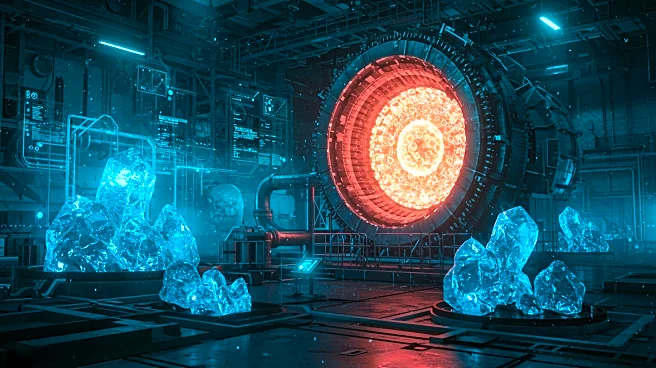What is the story about?
What's Happening?
India is advancing its energy self-reliance strategy, as outlined by Prime Minister Narendra Modi during his Independence Day address. The country is focusing on securing critical minerals and expanding its clean and nuclear energy capabilities. The National Critical Minerals Mission is exploring over 1,200 sites to ensure access to essential minerals for energy, industrial, and defense sectors. Additionally, India has launched the National Deepwater Exploration Mission to tap into offshore energy resources, aiming to reduce energy imports and enhance energy security.
Why It's Important?
India's push for energy self-reliance is crucial for its strategic autonomy and economic stability. By securing critical minerals and expanding nuclear energy, India aims to reduce dependency on foreign energy sources, which can be vulnerable to geopolitical tensions. This initiative supports India's climate commitments and sustainable growth, potentially positioning the country as a leader in clean energy. The move also opens opportunities for private sector involvement in nuclear energy, fostering innovation and economic growth.
What's Next?
India plans to develop ten new nuclear reactors, increasing its nuclear power capacity tenfold by 2047. The government is encouraging private participation in the nuclear sector to accelerate development. These efforts are expected to redirect national resources towards socio-economic initiatives, such as farmers' welfare, strengthening India's economic foundations.
Beyond the Headlines
India's energy strategy may influence global energy markets, particularly in the critical minerals sector. The country's focus on self-reliance could shift international trade dynamics, impacting countries that currently supply these resources. Additionally, India's nuclear expansion may raise environmental and safety concerns, requiring careful management and regulation.














